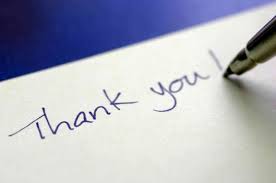 Today’s job market is increasingly competitive. With an influx of available candidates on the market, whether qualified or unqualified, hiring managers and recruiters have to work ten times as hard to fish through resumes to find the right candidate for the job. Getting in front of a recruiter or hiring manager is no longer the only difficult part of the job hunting process. So too is making yourself standout among the masses of hundreds of resumes and the 10 or so candidates who may get a face-to-face interview for a given position.
Today’s job market is increasingly competitive. With an influx of available candidates on the market, whether qualified or unqualified, hiring managers and recruiters have to work ten times as hard to fish through resumes to find the right candidate for the job. Getting in front of a recruiter or hiring manager is no longer the only difficult part of the job hunting process. So too is making yourself standout among the masses of hundreds of resumes and the 10 or so candidates who may get a face-to-face interview for a given position.
It was long thought that the best way to make yourself stand out was not only to have a solid interview, but to also have adequate follow up. And while I will not refute the importance of being an active part of the interviewing process, there are some unwritten rules when it comes to interview follow up. Here are the 5 rules of thumb regarding interview follow up:
1. Once is usually enough – Follow up is important, but you don’t have to follow up ten times a day to show your interest to a recruiter. This may only make you appear headstrong and you may inadvertently turn the hiring manager off. All recruiters greatly appreciate timely feedback when it comes to filling out paperwork, confirming interview times, and following up with how the interview went, but no one needs three emails about why you are the best candidate for the position. Tip: Responding with a “Thank You” email within 24 hours, and one follow up email or call in a few days to touch base is enough without being overkill.
2. Learn to take a hint – Unfortunately, you’re not going to get every job you interview for. And if you do congratulations, but if that were true, you probably wouldn’t be reading this blog. There will be times when a recruiter may stop returning your calls and emails, and these are people who are usually quite on the ball. So if they haven’t returned your call after four or five attempts, odds are better than not, that you didn’t get the position.
3. London Bridge might be burning down, but you don’t have to start the fire – If you don’t get the job, the last thing that you want to do is burn a bridge with a recruiter. Because a good recruiter may keep you in mind for other positions, and recruiters have friends . . . who they might talk to . . . about you. Tip: If you feel that you bombed your interview and did not get the position because of this, explain this to your recruiter in your “Thank You” follow up and express your interest in working with them in the future.
4. Different can be good – In your attempt to stand out from the crowd, your type of follow up can go a long way. Anyone can type an email, or send a handwritten card, but it’s the candidates who can think outside of the box that often make the most solid impression. Finding out something about the company that is important to their culture can go a long way. For instance, at entreQuest apples are a common theme. When I first interviewed at eQ, I noticed the apple symbolism everywhere: “Got Apples?” was their catch phrase and there was a bowl of Styrofoam apples on the counter which were tossed around the office during brainstorming exercises. That resonated with me, and I realized that apples were an important part of the company culture. I didn’t know why, but that really wasn’t important. When I got home that day I didn’t send a handwritten note or type up an email. I contacted the local florist and ordered a gift basket of honey and apples to be sent over the next morning. By the end of the week I was offered the position. Follow up is not just about thanking someone for the opportunity to interview, but about showing the company that you are invested enough in the opportunity that you care are the company, and its mission, and what you can bring to the table. Be mindful of that in your follow up.
5. Don’t be creepy – See step 4 – if finding what is meaningful or purposeful to the prospective employer means sneaking in to the company file room after hours, stalking someone on LinkedIn, or being all around a little too creepy, it’s best not to send that follow up gift. Follow up gestures should never be too personal or too invasive.
First interviews are a lot like first dates, it’s important to show interest without coming across too clingy, too creepy, or too aggressive. Be purposeful in the choices that you make with follow up and hopefully you will find much more luck in navigating the interviewing process.
Jes Geoffroy is an Operations Manager for entreQuest. She works closely with all team members to provide employees and clients with remarkable experiences.







